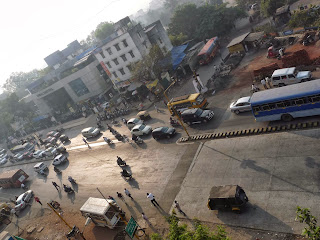48% voter turnout in Pune Vs 90% voting in Bhugaon
With the recently concluded elections in Bhugaon (a village 5 km away on the western fringe of Pune), it was heartening to see a more than 90% voter turnout. Last Sunday I witnessed the entire village out on the streets since morning, queuing up to cast their votes. The spectacle really made me think. Who are really the custodians of a robust democracy that India boasts about? The villagers, who have been relegated to the back with tags like 'uneducated', 'poor', 'illiterate' were all "literate and socially aware" to come out of their homes on a Sunday morning and participate actively in making of the government in their own small and meaningful way. While, the residents of cities tagged often as 'the educated, urbane intellectuals', want to enjoy the holiday meant for elections out of the city. Does this mean that the so called intellectuals have given up on democracy? Or are they educated but socially illiterate? Are they so ensconced in t
